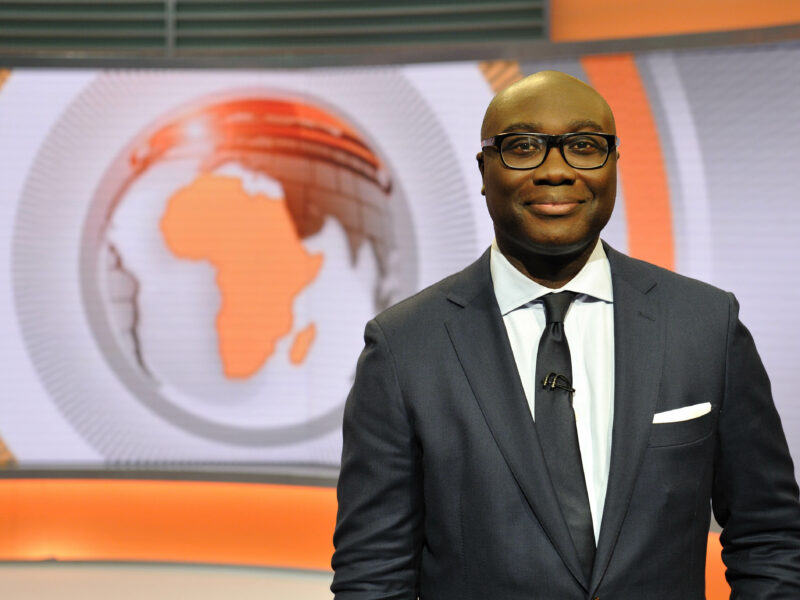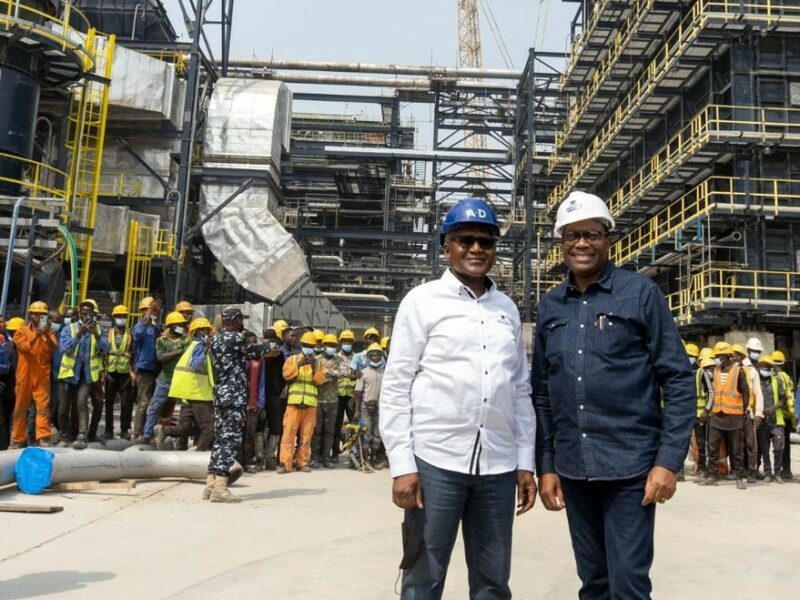OPWA 2012 Thanksgiving Service
In his keynote address at the Old Princewaleans 2012 Thanksgiving Service, Dr. Hamid M. Kargbo, M.D., Senior Assistant Resident, Internal Medicine, John Hopkins Hospital, Baltimore MD (in photo) made the following speech.
Mr. Chairman, esteemed teachers, distinguished guests, and fellow Princewaleans:
It is a great privilege and high honor to stand before you as the keynote speaker on this very grand occasion. At this ceremony last year we heard a very eloquent address focused on the religious tolerance that was exemplified at the Prince of Wales school. It was a brilliant reminder of the visionary leadership of the Prince of Wales, as we are all witnesses to the endless civil wars and genocide committed, around the world, in the name of religion.
As I confronted the subject of a theme for my address, I found myself ruminating on what it meant to be a Princewalean. What purpose does the Prince of Wales school serve in Sierra Leone? Indeed, what is the mission of the Prince of Wales secondary school? Is the school succeeding in its stated goal of educating the best and the brightest, the Crème de la Crème, the finest ladies and gentlemen who call Sierra Leone home? Fellow Princewaleans allow me the next few minutes to share my thoughts on the Evolving Role of the Prince of Wales school in the destiny of Sierra Leone.
As you know our beloved school was founded 87 years ago, on April 6 1925, when then Prince of Wales HRH Prince Edward David (at the time Duke of Cornwall, later King Edward VIII and, after he abdicated his throne, Duke of Windsor) on a tour of Africa and South America, arrived in Freetown aboard the battle-cruiser HMS Repulse. The school’s mission at its inception was to foster science education and studies in modern languages. The goal was to achieve academic excellence by exposing the brightest students to the best teachers in a culturally diverse and religiously neutral environment. The results speak for themselves, as the Prince of Wales has bred leaders in all aspects of Sierra Leonean high society. Amongst us, just in this gathering today, are leaders in Medicine, Law, Engineering, and Information Technology. So why is it that Sierra Leone continues to lag behind our West African neighbors, Nigeria and Ghana, in healthcare, infrastructure, and industry?
As we give thanks today and celebrate the opportunity and privilege of being successful Princewaleans, let us reflect on how the school that guaranteed our success could spearhead a movement to restore Sierra Leone, once the Athens of West Africa, to its lofty pedestal as an example of academic, financial, and industrial excellence worthy of emulation by the rest of the continent. And if we do it right, the rest of the world will come knocking. My humble wish is for Sierra Leone to be at the forefront of the African Century, which will come around at some point, and for the Prince of Wales to lay the foundations and quarterback that march forwards.
Let me at this point take a detour through medical history, to illustrate how an American institution that is by all accounts the national and perhaps world leader in medicine may have failed the American people in healthcare. It is widely known that American medical education at the turn of the 19th century was abysmal, and left much to be desired. In the words of the Dean of the Harvard Medical school at the time “half the trainees cannot even read or write”! There was no formal curriculum and people just made things up as they went. In 1910 Abraham Flexner, a Carnegie fellow and educator, visited all 155 medical schools at the time and published a report on the state of medical education in the US and Canada. The reality was so deplorable that he described the 14 medical schools in Chicago, for example, as “a disgrace to the State whose laws permit their existence”. He singled out a few medical schools as excellent performers and shined the spotlight on Johns Hopkins as the “model of medical education”. The Flexner Report bolstered by Hopkins’ early success, led to the emergence of Johns Hopkins as the national leader in medical education and practice. In that capacity Hopkins excelled, producing ground-breaking research, training national and world leaders, and pioneering medical breakthroughs. Today 100 years after the Flexner Report, America has the best healthcare in the world. It’s just not available to everyone, because the system within which that excellent healthcare is delivered is broken, indeed broken badly. What’s the point of having the best medical services if people continue to die of preventable conditions simply because they cannot access those services?
If we are to commend John Hopkins for giving us this excellent healthcare, are we not also obligated to criticize her for that system’s failures? Indeed, in the unequal and discriminatory delivery of healthcare is precisely where Hopkins may have failed the American people. How could such a phenomenal success simultaneously be a colossal failure? One has to return to the original mission for a possible explanation-Hopkins never got the memo that it was supposed to create an excellent system that was equally available to everyone. It was simply tasked to lead the nation towards better medical education and practice, and it did so with excellence. However, with the new realization of intrinsic failures in the current model, Hopkins is now at the point of restructuring its goals to prioritize the patient and the community to which the patient belongs. Fellow Princewaleans listen closely and, in the experience of Johns Hopkins, you will hear a loud and clear wake-up call for the Prince of Wales school.
Isn’t it time for the Prince of Wales, like Hopkins in the U.S., the flagship educational institution in Sierra Leone, to change its mission from educating successful individuals to educating successful communities and, by extension, a successful society? Instead of simply sending forth the most highly skilled, talented, and effective ladies and gentlemen, should we be sending forth the most passionate patriots? If the majority of Sierra Leone’s masters of high society are Princewaleans, should the Prince of Wales not take some responsibility for where we find ourselves today? If the Prince of Wales leads, I have no doubts that others will follow. Like John Hopkins, the Prince of Wales succeeded it its original mission but, fellow Princewaleans, I submit that we must now succeed in a new mission: the creation of a just, productive, and successful nation. It is no longer enough to be successful as individual Princewaleans. As our nation’s leaders we must now invest in the success of those we lead and in the success of our country.
Some might consider this challenge too much to ask of a secondary school. Indeed John Hopkins is a large medical school within an even larger university and hospital system, with an annual operating budget that rivals that of many small cities even in this country. However, I still believe that the seeds of true Nationalism (asking what you can do for your country, to borrow the words of President Kennedy), must be sown during the formative years of development. Secondary school is far and away a much better place to instill those values in our future leaders, than at any other point in their development. While this might represent a major shift in the school’s center of gravity, the POW cannot timidly shy away from this challenge. We must rise to the occasion, stop the downward spiral in our nation’s fortunes, and chart a new course- a bold new course that will make Sierra Leone once more the envy of other nations.
I was fortunate to have met the current Prince of Wales, Prince Charles, at a reception for Commonwealth students, while I studied at the University of Cambridge. This was at the height of the rebel/civil war in Sierra Leone, and he shared some of his thoughts when he stopped at my station. Something he said that stuck with me was that, in his opinion, what we lacked in Sierra Leone was exemplary leadership – someone others can aspire to be like. President Obama, for example, is guided by the examples of Abraham Lincoln, FDR, Clinton, and the list goes on. Our brothers in South Africa can look up to Nelson Mandela. We need leaders that are honorable, visionary, commendable, laudable, excellent role-models – you choose your favorite adjective – but we need them in Sierra Leone. And as the premier institution in the country, the Prince of Wales is uniquely positioned to inculcate these qualities in the young minds of our next generation of leaders.
Without knowing that I was a Princewalean, Prince Charles even suggested that I return home and do something about the conflict.
Great leaders, however, only rarely succeed in a vacuum. If Sierra Leone is to reach her potential, it will not be because of a single man or woman acting in isolation and doing all the work. It will be the concerted effort and triumph of many people taking chances, sacrificing for the greater good, and turning their backs on materialism, tribalism, nepotism, and violence. There are considerable downside risks to these honorable pursuits, but if you are tired of being asked to step aside each time you present your passport at airports around the world, then the choice is self-evident.
Let me apologize right away in the event my words have offended anyone here today. I speak as someone who has benefitted tremendously from the work ethic and values I acquired in the seven years I spent at the Prince of Wales. I have been fortunate to attend some of the best universities in the world and work with experts at the cutting edge of their fields. In all those encounters I have never felt inadequate, or come up short, and I owe that in large part to my colleagues at the Prince of Wales who challenged me to excel, and to my teachers who gave me the tools to succeed. I truly keep a niche within my heart for the Prince of Wales school. I wish for that level of success and confidence for every Sierra Leonean, even those not chosen or anointed as Princewaleans.
Let me conclude by thanking the executive and membership of the Old PrinceWaleans Association DC for the opportunity to share my thoughts with this august gathering of celebrated alumni. I pray that God continues to bless us, our native, and our adopted countries.
OPWA, USA
Stay with Sierra Express Media, for your trusted place in news!
© 2012, https:. All rights reserved.






Thanksgiving Joe
/
OPWA 2012 Thanksgiving Service: In his keynote address at the Old Princewaleans 2012 Thanksgiving Service, Dr. H… http://t.co/cYACukF2
25th April 2012Thanksgiving Joe
/
OPWA 2012 Thanksgiving Service | Sierra Express Media: In his keynote address at the Old Princewaleans 2012 Than… http://t.co/TA8smqK7
25th April 2012CircleOfVisionaries
/
OPWA 2012 Thanksgiving Service http://t.co/CFF1evOa
25th April 2012Mike Robey
/
OPWA 2012 Thanksgiving Service http://t.co/dvVdbeAS
25th April 2012